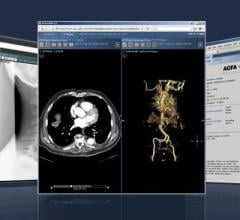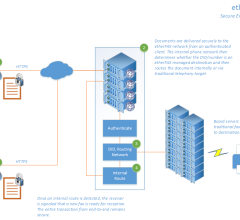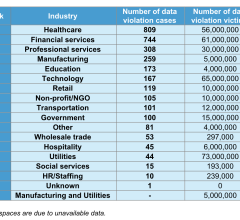
March 4, 2015 — The Centers for Medicare & Medicaid Services (CMS) is working closely with stakeholders across the healthcare industry to provide support in transitioning to version 10 of the International Classification of Diseases (ICD), including an online resource. CMS will officially transition from ICD-9 to ICD-10 on Oct. 1, 2015.
The International Classification of Diseases, or ICD, is used to standardize codes for medical conditions and procedures. While most countries already use the 10th revision of these codes (or ICD-10), the United States has yet to adopt this convention.
ICD-9 is more than 35 years old and contains outdated, obsolete terms that are inconsistent with current medical practice. The structure of ICD-9 limits the number of new codes that can be created, and many ICD-9 categories are full. ICD-10 provides room for code expansion, so providers can use codes more specific to patient diagnoses. The United States is the last major industrialized nation to make the switch to ICD-10.
ICD-10 codes will provide better support for patient care and improve management, quality measurement and analytics. Since ICD-10 codes are more specific than ICD-9, doctors can capture much more information, meaning they can better understand important details about the patient’s health than with ICD-9-CM. This will:
- Improve coordination of a patient’s care across providers over time;
- Advance public health research, surveillance, and emergency response through detection of disease outbreaks and adverse drug events;
- Support innovative payment models that drive quality of care; and
- Enhance fraud detection efforts.
Physicians and physician specialty groups in the U.S. provided extensive input into the development and timing of implementation of ICD-10-CM to the Centers for Disease Control and Prevention.
In 2008, the U.S. Department of Health and Human Services (HHS) issued a proposed rule to transition to ICD-10 on Oct. 1, 2011. Stakeholders commented that they needed additional time to prepare for the transition. In the 2009 final rule, HHS established Oct. 1, 2013, as the date for the transition to give providers two additional years to prepare.
In 2012, HHS moved the ICD-10 compliance date to Oct. 1, 2014, providing the industry with an additional year to work toward a successful transition. The Protecting Access to Medicare Act of 2014 (PAMA), which was enacted on April 1, 2014, prohibited the Secretary from adopting ICD-10 prior to Oct. 1, 2015.
The industry has invested significant resources toward the implementation of ICD-10. Many providers—including physicians, hospitals and health plans—have already completed the necessary system changes to transition to ICD-10. Additional delays pose significant costs for providers who have updated their system.
CMS and many commercial health plans are unable to process claims for both ICD-9 and ICD-10 codes submitted for the same dates of service, so a “transition period” – in which providers could submit claims using either ICD-9 or ICD-10 – is not possible.
At the same time it is not feasible to skip directly to ICD-11 because ICD-10 is a foundational building block prior to moving to ICD-11. The earliest the ICD-11 code set will be released by the World Health Organization (WHO) is 2017. Several prominent industry groups, including the American Medical Association, have issued statements opposing transitioning directly to ICD-11 because of the complexity of the coding system and the best practice to implement ICD-10 to gain experience with that system first.
CMS has developed multiple tools and resources that are available on the ICD-10 website (http://www.cms.gov/ICD10), including ICD-10 implementation guides, tools for small and rural providers and general equivalency mappings (ICD-9 to ICD-10 crosswalk).
CMS has completed rigorous and comprehensive internal testing to ensure that CMS systems can accept and pay provider claims with ICD-10 codes on Oct. 1, 2015.
For more information: www.cms.gov


 May 17, 2024
May 17, 2024 








